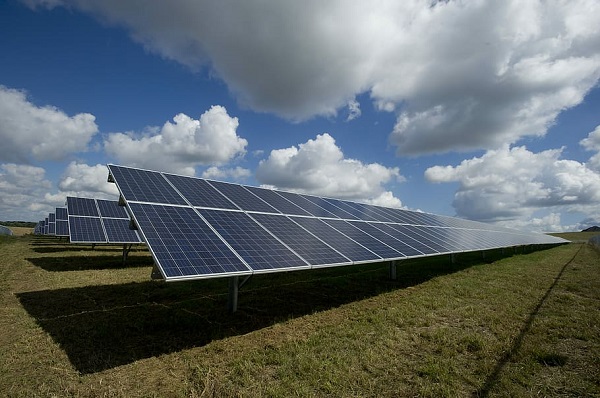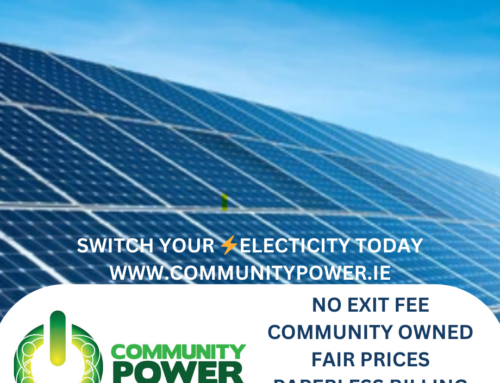The Minister for Communications, Climate Action and Environment, Eamon Ryan T.D. has announced the provisional results of the first Renewable Electricity Support Scheme (RESS) auction.
Minister Ryan said:
“As the Minister for Climate Action, I am delighted to welcome the provisional results of the first auction under the new Renewable Electricity Support Scheme. While these results remain subject to Government approval, the first RESS auction provides us with a platform for rapid deployment of onshore wind and solar projects at scale and at least cost, replacing fossil fuels on our energy grid. We have exceeded our target for Community projects participation with seven communities being supported to produce their own power and share in the ownership of Ireland’s energy revolution while inspiring others to follow. I would expect that our next auction will have a higher share of community based renewables.
The results are very competitive and represent a significant saving on previous support schemes. The volumes procured set us on the right trajectory to achieve the ambitious 70% renewable electricity target by 2030 set out in the Programme for Government and the Climate Action Plan. This will be crucial to Ireland’s contribution towards an EU wide renewable energy target of 32% by 2030 and to the 7% per annum reduction in overall greenhouse gas emissions from 2021 to 2030.
Meeting these targets will support an investment in Ireland of over 1.4Bn euro and support the recovery by creating roughly 10,500 construction jobs and 1,100 additional permanent jobs[1]. The Government allocated funding as part of the July Stimulus for green apprenticeships, which will be needed to support these investments and provide a path for transition from brown to green for many Irish communities, particularly in the Midlands.
To date, developer-led onshore wind energy has been the most cost effective technology available to Ireland, however, solar and community owned energy projects will play a critical role in diversifying our renewable generation portfolio for the period out to 2030.”
Notes:
• 2,237GWh of the 2,557GWh bids submitted have been identified as provisional winners. This equates to a potential saving of approximately 671kt of CO2 per year (Source: SEAI) from RESS-1 renewable projects. This accounts for approximately 10% of the amount required to meet the 2030 targets.
• This equates to approximately 479MW of onshore wind and 796MW of solar.
• The average weighted bid price for the technology neutral auction was €74.08 per MWh. This represents significant savings on previous schemes. Unlike previous schemes, renewable generators will be required to pay back to electricity customers when market prices are high, the bid prices are also fixed over the lifetime of the support and no payments will be made during negative market price periods. The combination of these factors means better value for the electricity customer.
• Solar Preference categories: RESS-1 included the use of a solar preference category, at approximately 10% of the auction volume. Solar energy accounted for approximately 34% of the overall auction energy volume, the majority of this portion was awarded in the technology neutral category with solar energy proving very competitive.
• Community led category: RESS-1 included the use of a 30Gwh preference category for community projects, approximately 1% of the auction volume. Community energy accounted for approximately 1.5% of the overall successful auction volume with seven projects identified as provisional winners. This will allow communities to develop their own renewable energy projects and sell the energy back to the grid.
• Community Participation: The Programme for Government, “Our Shared Future”, recognises the importance of community involvement in energy projects. The first RESS auction includes mandatory community benefit funds for all projects and a dedicated community projects category. The community benefit fund under RESS-1 will deliver approximately €4.5million a year to sustainable community initiatives targeted at those communities living in close proximity to the RESS-1 Projects. Additional community policies and supports are specified in the State Aid including: financial support for community-led projects, mandatory community benefit funds, investment opportunities for communities and citizens, and additional community categories for future RESS auctions.
• The frequency of future RESS auctions is dependent on the renewable electricity project supply pipeline. It is envisaged that a minimum of four auctions will occur between 2020 and 2025 to deliver on the 2030 targets. This will provide pathways for renewable developers including offshore wind projects as it sets out the indicative timelines and volumes for auctions over the coming decade and provides clarity for developers in relation to when they need to have their projects ‘auction ready’. It will also allow Ireland to take advantage of new technologies as they emerge.
• Full details of the results can be found here
• [1] Source: https://prod-drupal-files.storage.googleapis.com/documents/resource/public/final-harnessing-our-potential-report-may-2020.pdf https://prod-drupal-files.storage.googleapis.com/documents/resource/public/final-harnessing-our-potential-report-may-2020.pdf and https://www.irena.org/publications/2017/Jun/Renewable-Energy-Benefits-Leveraging-Local-Capacity-for-Solar-PV https://www.irena.org/publications/2017/Jun/Renewable-Energy-Benefits-Leveraging-Local-Capacity-for-Solar-PV




